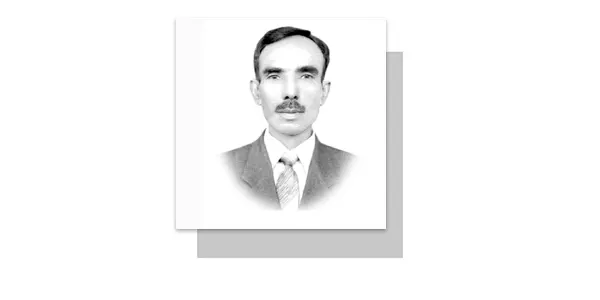WHEN India celebrates Republic Day on January 26, Kashmiris living on both sides of the Line of Control (LoC) and Pakistanis, including those of rest of the world observe it as the Black Day to protest against Indian illegal occupation of Kashmir and to convey the message to the international community that New Delhi continues to usurp their inalienable right of self-determination.
India claims to be the largest democracy with principles of liberalism and secularism, but in practice, divisions along religious and caste lines persist in politics, economics, and society. While the constitution safeguards minority rights, the prevalence of Hindutva (Hindu Nationalism) in practice challenges the ideal of secularism.
The ruling BJP party, led by Prime Minister Narendra Modi, is rapidly implementing the Hindutva ideology, disregarding the Constitution. Internal policies in India exhibit a totalitarian shift, marked by a surge in Hindu extremism and persecution of minorities, including Sikhs, Christians, Muslims, and lower-caste Hindus. Controversial measures like the anti-Muslim Citizenship Amendment Act 2019 and the National Register of Citizens reveal the promotion of religious and ethnic chauvinism by Hindu fanatic groups in India.
While, Indian Constitution was torn into pieces when on August 5, 2019, Indian Parliament revoked articles 35-A and 370 of the Constitution that gave a special status to the disputed territory of the Indian Illegally Occupied Jammu and Kashmir (IIOJK). The act split the IIOJK into two territories to be ruled directly from the Centre.
Thus, fanatic PM Modi’s government led by extremist party BJP unilaterally annexed the IIOJK to turn Muslim majority into minority. On the same day, strict military lockdown was imposed in the IIOJK which continues unabated.
The deployment of more than 900,000 military troops in the IIOJK, that have martyred tens of thousands of the Kashmiris, including women and children through brutal tactics-fake encounters, while closure of mosques, shortage of food, medicines for the patients have further deteriorated the plight of the Kashmiris.
While, under a well-planned hidden agenda, Modi-led regime has intensified, bringing ethno- demographic changes in IIOJK. In this context, India’s various moves such as introduction of new laws, amendment of the laws to facilitate non-Kashmiris and outsiders in order to usurp the rights of the Muslim Kashmiris—issuance of domicile certificates to more than 800000 non-Kashmiris, registration of almost 2.5 million new non-local voters in the IIOJK—failure of fake drama to host G-20 summit on May 22-24, 2023 in the IIOJK, from time to time, violations of the Line of Control (LoC) by shelling inside Pakistani side of Kashmir—in violation of the ceasefire agreement of 2003 might be cited as instance.
In order to conceal India’s state terrorism, Kashmir has been cut off from rest of the world. Notably, during the partition of the sub-continent, the people of the state of Jammu and Kashmir (J&K) which comprised Muslim majority decided to join Pakistan. But, Dogra Raja, Sir Hari Singh, a Hindu who was ruling over the J&K in collusion with the Indian Prime Minister Jawaharlal Nehru and Governor General Lord Mountbatten joined India. The Radcliffe Boundary Award gave the Gurdaspur District—a majority Muslim area to India to provide a land route to the Indian armed forces to move into the J&K. Indian forces invaded Srinagar on October, 27 1947 and forcibly occupied the J&K in utter violation of the partition plan.
When Pakistan responded militarily, on December 31, 1947, India made an appeal to the UN Security Council to intervene and a ceasefire ultimately came into effect on January 01, 1949, following UN resolutions calling for a plebiscite in Kashmir. The Security Council’s 1948 resolution promising a UN-supervised plebiscite for Kashmir’s people to choose between joining Pakistan or India was reneged by India on February 5, 1964, as it declared Kashmir an integral part of the Indian union, abandoning the commitment to the plebiscite.
Since 1989, Kashmiris have already been enduring various forms of state terrorism; no Indian soldier has ever been taken to task. Hence, since the military clampdown started, Indian forces have intensified the employment of cruel tactics. Almost, 100,000 Kashmiris have died in the past 33 years.
UN human rights experts on August 4, 2020 called on India and the international community to take urgent action to address the “alarming” human rights situation in Jammu and Kashmir—“to investigate all cases of human rights violations, including extrajudicial killings, enforced disappearances, torture and arbitrary detentions.”
Amnesty International said on September 29, 2020 that it is “stopping its work in India because the government has frozen its bank accounts on September 10 [2020] for highlighting rights violations in Jammu and Kashmir…the government had sought to punish it for that”.
In the recent past, the UNSC in its meetings has thrice reiterated that the Kashmir issue requires to be settled in accordance with the principles of the UN charter and the related Security Council resolutions. Moreover, Indian extremist rulers are escalating tensions with Pakistan to divert attention from the drastic situation of the IOK and Indian internal issues. For the purpose, Indian forces have also accelerated shelling inside Pakistani side of Kashmir by violating the ceasefire agreement in relation to the LoC.
In a statement, ISPR had said that on December 18, 2020, Indian troops specifically targeted a United Nations vehicle carrying two officers of the United Nations Military Observer Group in India and Pakistan.
Nonetheless, 26th of January which is celebrated as the Indian Republic Day, is being observed by the Kashmiris and Pakistanis across the globe as the Black Day to express solidarity with the Kashmiri freedom fighters.
—The writer is contributing columnist, based in Lahore.
Email: [email protected]
views expressed are writer’s own.










